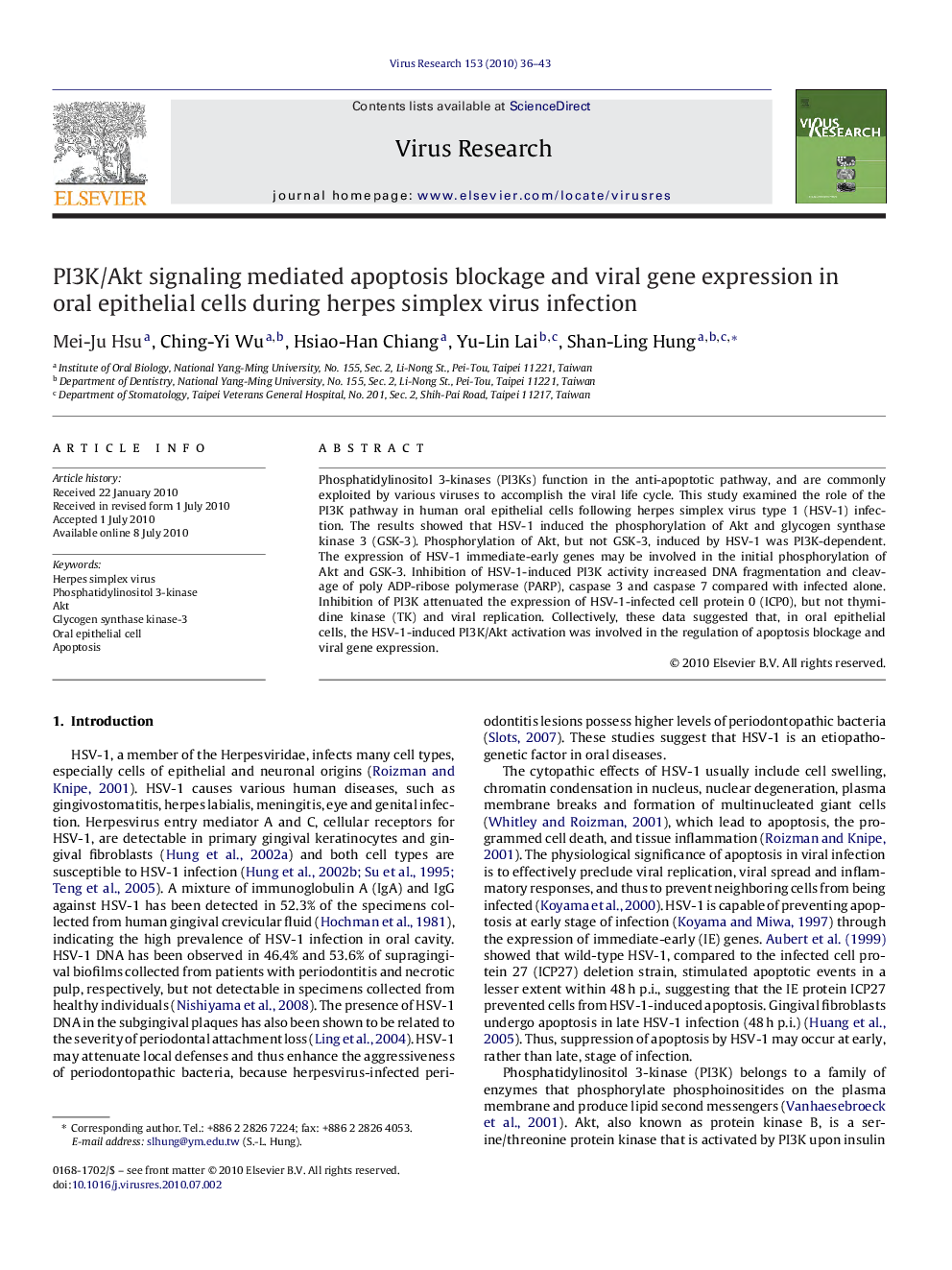| Article ID | Journal | Published Year | Pages | File Type |
|---|---|---|---|---|
| 3429327 | Virus Research | 2010 | 8 Pages |
Phosphatidylinositol 3-kinases (PI3Ks) function in the anti-apoptotic pathway, and are commonly exploited by various viruses to accomplish the viral life cycle. This study examined the role of the PI3K pathway in human oral epithelial cells following herpes simplex virus type 1 (HSV-1) infection. The results showed that HSV-1 induced the phosphorylation of Akt and glycogen synthase kinase 3 (GSK-3). Phosphorylation of Akt, but not GSK-3, induced by HSV-1 was PI3K-dependent. The expression of HSV-1 immediate-early genes may be involved in the initial phosphorylation of Akt and GSK-3. Inhibition of HSV-1-induced PI3K activity increased DNA fragmentation and cleavage of poly ADP-ribose polymerase (PARP), caspase 3 and caspase 7 compared with infected alone. Inhibition of PI3K attenuated the expression of HSV-1-infected cell protein 0 (ICP0), but not thymidine kinase (TK) and viral replication. Collectively, these data suggested that, in oral epithelial cells, the HSV-1-induced PI3K/Akt activation was involved in the regulation of apoptosis blockage and viral gene expression.
